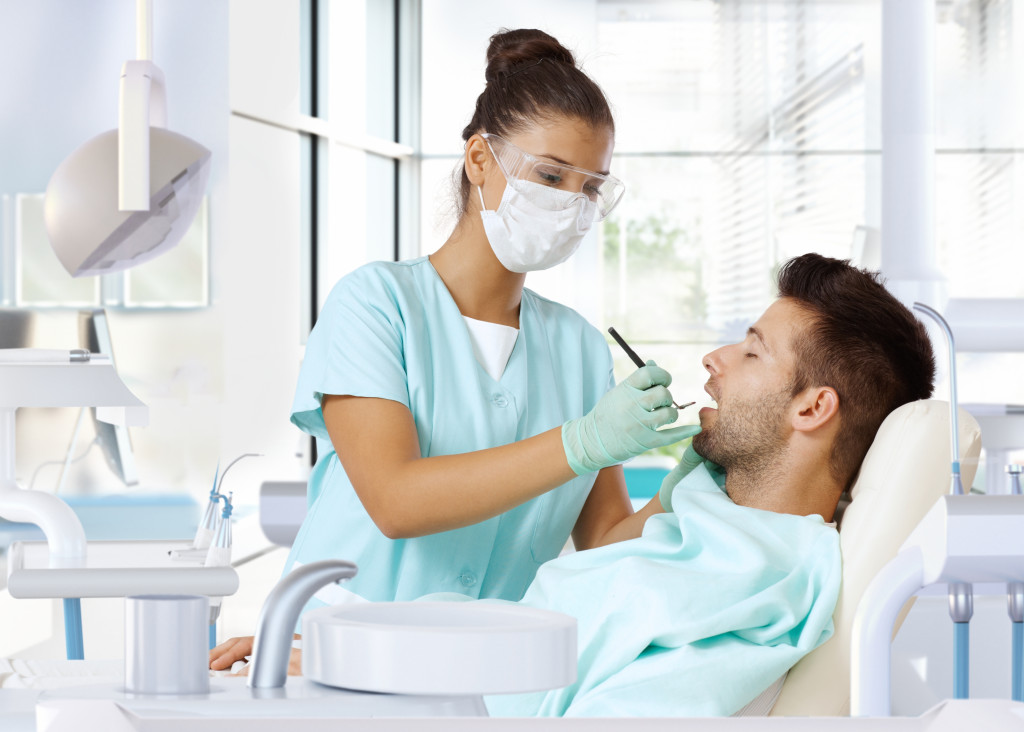Most people are familiar with the common health screenings that women should get, such as mammograms and pap smears. However, many men are not aware of the health screenings they should be getting. In fact, several health screenings are specific to men, and that can help detect health problems at an early stage when they are most treatable.
This blog post will go over the seven health screenings every man should get. But before we do that, let’s briefly touch on why health screenings are important in general.
Why Are Health Screenings Important?
Health screenings are important because they can help detect health problems at an early stage before they become more serious. Additionally, health screenings can help identify risk factors for certain diseases and conditions, which can then be addressed to lower your risk. These screenings can also help you and your doctor develops a plan to manage any chronic conditions that you may have.

Seven Health Screenings Every Man Should Get
There are several health screenings that every man should get, starting at around age 50 (or sooner if you have risk factors for certain conditions). These health screenings can help detect various diseases and conditions, some of which are specific to men. Here are the seven health screenings every man should get:
1. Prostate Cancer Screening
Prostate cancer is one of the most common cancers in men, and there are two main ways to screen for prostate cancer: a digital rectal exam (DRE) and a prostate-specific antigen (PSA) test. During a DRE, the doctor will insert a gloved finger into the rectum to feel for any abnormalities in the prostate. The PSA test measures the level of PSA in the blood. A high PSA level can be an indication of prostate cancer.
2. Colon Cancer Screening
Colon cancer is the third most common cancer in men and the second leading cause of cancer death in men. There are several ways to screen for colon cancer, including a colonoscopy, sigmoidoscopy, and stool tests. A colonoscopy is the most comprehensive way to screen for colon cancer. It involves inserting a long, flexible tube with a camera into the rectum to examine the entire length of the colon. A sigmoidoscopy is similar to a colonoscopy, but it only examines the lower part of the colon. Stool tests involve testing a stool sample for blood, which can be an indication of colon cancer.
3. Lipid Profile
A lipid profile is a blood test that measures the levels of cholesterol and other fats in the blood. High cholesterol is a risk factor for heart disease, so it’s important to get this test to check your cholesterol levels. The American Heart Association recommends that all men over the age of 40 should get a lipid profile every four to six years.
4. Blood Pressure Screening
High blood pressure is a risk factor for heart disease, stroke, and kidney disease. That’s why it’s important to get your blood pressure checked on a regular basis. The American Heart Association recommends that all men over the age of 18 should get their blood pressure checked at least every two years.
5. Diabetes Screening
Diabetes is a chronic condition that occurs when the body can’t properly process sugar. It’s a risk factor for heart disease, stroke, and kidney disease. There are several ways to screen for diabetes, including a fasting blood sugar test, an A1C test, and a glucose tolerance test.
6. Oral Health Exam
Oral health is essential because it affects your overall health. Poor oral health can lead to several problems, including tooth decay, gum disease, and even heart disease. That’s why it’s essential to get regular oral health exams. Your dentist will examine your teeth and gums for tooth decay and gum disease signs. They will also look for any other problems, such as oral cancer.
7. Eyesight Test
It’s important to get your eyesight checked regularly because vision problems can lead to accidents and injuries. Additionally, many eye diseases, such as glaucoma and cataracts, don’t have symptoms in the early stages. That’s why it’s important to get an eye exam at least every two years. During an eye exam, the doctor will check your vision and look for any signs of disease or injury. They will also check the pressure inside your eyes.
These are the seven health screenings that every man should get. While some of these screenings may be familiar to you, others may not be. However, all of these screenings are important for men’s health. So, if you haven’t been screened for one of these conditions, be sure to talk to your doctor about it.


